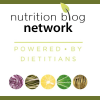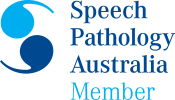Pregnant women often use the phrase ‘now I’m eating for two’. There is an increase in the calorie intake for pregnant women as the child is relying on the mother’s diet for nutrition. However, eating for two does not mean simply doubling the calories. The extra need for calories should not be a license to consume empty calories from high fat, high sugar foods or sugar sweetened beverages. Instead, calories should come from a variety of food groups such as fruits, vegetables, healthy fats, wholegrain carbohydrates and lean protein. A healthy diet that includes different food groups will ensure that yours and your child’s nutrient needs are met.
Important points to keep in mind when you are expecting:
1. Your body weight:
You only need to put on a specific amount of weight for a healthy pregnancy, and how much will depend on your BMI. Excess weight gain can cause complications during delivery or an increased risk to the health of the baby. . A woman with a BMI above 30 could be susceptible to gestational diabetes. On the other hand, an inadequate amount of weight gain increases the risk of a having a low weight baby or a premature delivery. During the first trimester, there is no additional calorie requirement. During the second trimester, an extra 340 calories a day is required, and an additional 450 calories during the third trimester.
The following is an indication of the required weight gain depending on your BMI:
Low BMI< 18.5: 12.5-18 Kg
BMI 18.5- 25: 11.5- 16 Kg
BMI 25-30: 7- 11.5 Kg
BMI> 30: 5-9 Kg
2. Adequate protein intake:
During late pregnancy increased protein is required. This is extremely important for healthy growth and development of the maternal tissues and the foetal support tissues. Adequate protein also helps prevent complications such as low birth weight infants. Low birth infants are at an increased risk of developing chronic diseases such as cardiovascular disease and obesity later on in their lives. Increased protein should come from lean cuts of meat including beef, poultry and pork, and other sources such as eggs and vegetable protein sources like legumes and tofu.
3. Adequate folate intake:
Folate is a crucial nutrient required to protect the baby from neural tube defects. It is recommended to obtain most of the essential folate nutrients from food, however due to high folate requirements, supplementation and fortified foods are also necessary.
4. Adequate iron intake:
The requirements for iron are the highest during the third trimester. This is because the foetus has its own blood stores by this stage. Vegetarians have an 80% higher requirement for iron as plant sources of iron are not as well absorbed by the body as iron obtained from animal sources.
5. Adequate zinc intake:
Zinc helps the growth of maternal and foetal tissues. Again, vegetarians have a higher need as the plant sources of zinc are not as well absorbed. Furthermore, iron and zinc have competitive effects, so your zinc levels may increase if you are taking high levels of iron supplements.
6. Adequate iodine intake:
Iodine is a matter of public health concern for pregnant women as iodine deficiency can lead to mental and physical retardation. According to public health policy, bread and salt are fortified with iodine.
In summary, your lifestyle and eating patterns have to be given the utmost importance because a healthy mum leads to a healthy baby!
Contact us for results focused on nutritional advice
This article was written by our dietitian and nutritionist Juhi Bhambhaney. If you have any questions regarding health and nutrition, make an appointment with one of our dietitians. We‘ll provide you with a simple and effective routine targeted to your concerns. Contact us today.
The post Nutrition during Pregnancy appeared first on ENT Wellbeing Sydney.










